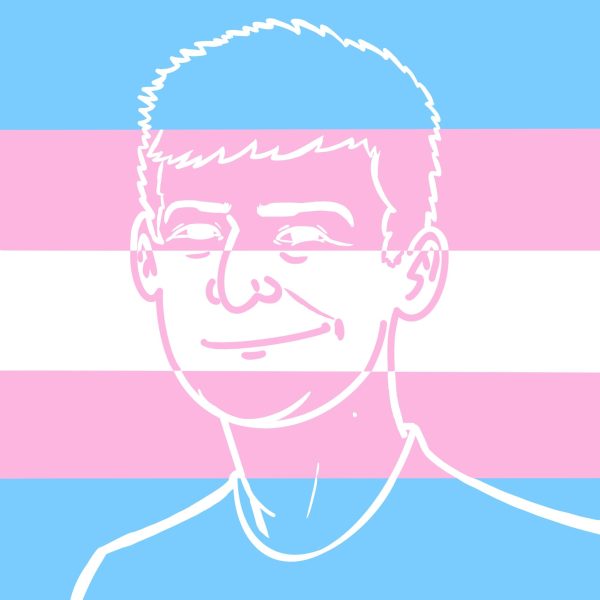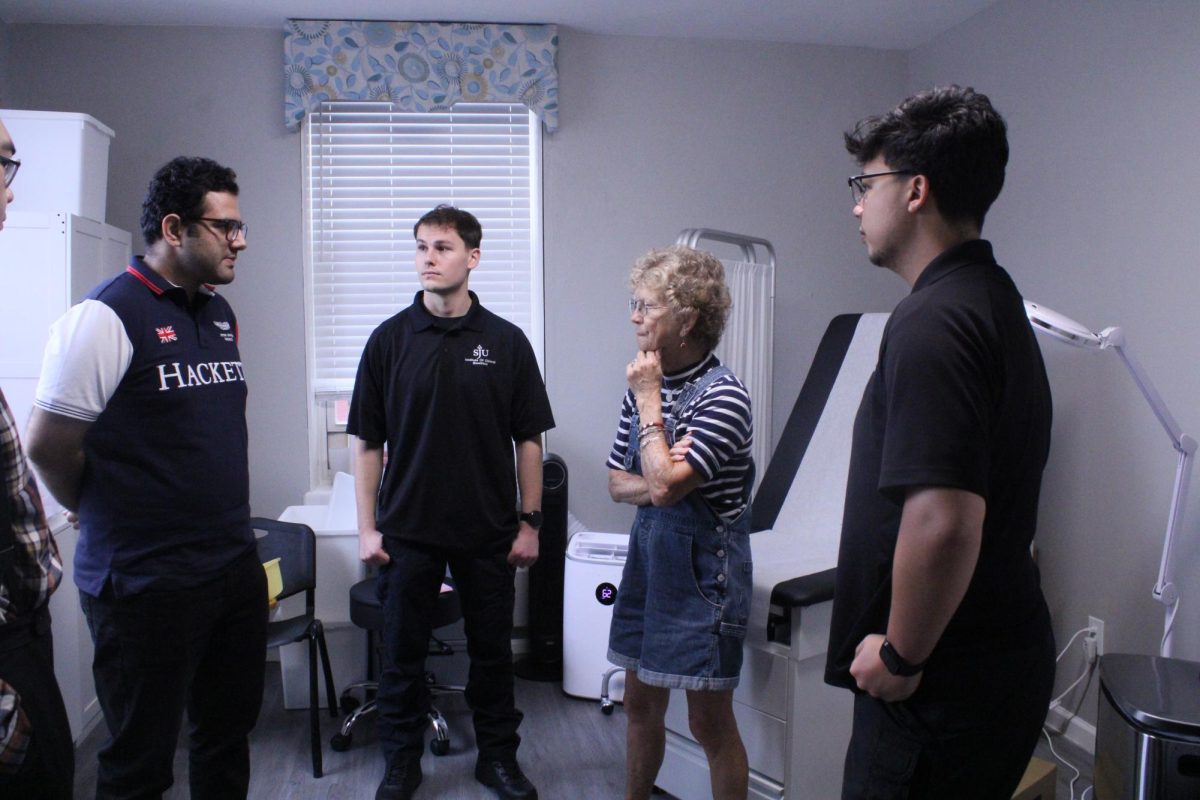It’s nearly impossible to describe Ashton Clatterbuck in a single word.
Clatterbuck’s mother, Malinda Clatterbuck, described her son as an activist, advocating for environmental protections and serving as a legal observer for the Black Lives Matter movement in his hometown of Lancaster.
“My wish for the new year is for humanity to discover it’s great capacity to heal one another, and, therefore, choose to love rather than hate,” Ashton Clatterbuck wrote in an opinion piece for LancasterOnline in December 2022.
Transgender rights and protections were a special focus of Ashton Clatterbuck, who at 16, came out as a trans man to his family during a family dinner. His op-eds, published in news outlets like LancasterOnline, detailed his concerns as a trans man living in the U.S. and spoke against anti-LGBTQIA+ legislation.
“He wanted to help make a change for the good, for the better, for people and for the Earth,” Malinda Clatterbuck said.
Ashton Clatterbuck’s life was cut short when he died by suicide Feb. 27, 2024. He was 22 years old and attending Montclair State University.
“He was a positive presence for those who were hurting because he knew what it was to hurt,” Malinda Clatterbuck said. “And that empathy and compassion flowed out of him no matter what, even if there was a point when he wasn’t in a good place.”
A national conversation
Malinda Clatterbuck spoke to the St. Joe’s community about her son and the trans mental health crisis at a March 27 panel titled “Gender in the Classroom: What You Need to Know About Trans Students in Education” in Campion North Lounge, where other panelists similarly discussed national trans mental health trends.
Nationally, transgender youth are at a disproportionately high risk for suicide. The Trevor Project’s 2024 U.S. National Survey on the Mental Health of LGBTQ+ Young People found that 39% of LGBTQ youth seriously considered suicide in the past year, including 46% of transgender and nonbinary youth. Additionally, LGBTQ youth of color reported higher rates than their white peers.
Factors contributing to these statistics, according to the Trevor Project report, include bullying, a lack of access to mental health care and living in unaccepting communities. Ninety percent of LGBTQ youth said recent politics negatively affected their well-being.
“The sweep of introduced legislation that is anti-trans, that negates the existence of trans people, are bullying measures and affect individuals as if they are being bullied,” said Malinda Clatterbuck, who works as a therapist. “It’s not just an individual who threatens your life that can create in you the feeling of being unloved, unwanted, targeted for discrimination, for violence, but the nation, the society, elected officials who are in power turning against demographics of people in their community.”
So far, in 2025, 859 anti-trans bills have been proposed nationally, according to the Trans Legislation Tracker. This is an increase from the number of anti-trans bills proposed in 2024, which totaled to 701. Of the 859 bills proposed in 2025, 727 are active, with 83 passed and 49 failed. These bills include, but are not limited to, trans individuals’ recognition in fields like healthcare and education.
Federally, transgender individuals have been a focus of President Donald Trump, who signed an executive order Jan. 20 titled “Defending Women From Gender Ideology Extremism and Restoring Biological Truth to the Federal Government.” The statement reads that sex is “not changeable” and instructs the executive branch of the U.S. government to “enforce all sex-protective laws to promote this reality.”
“All of these marginalized people who are being oppressed and targeted for bigotry have that potential to internalize the demonization of them because of the language that is used at the national level and from the most powerful person in the world,” Malinda Clatterbuck said.

Tackling the crisis
Alexander Stefanini, owner and founder of Arrive Therapy, a Chester County-based LGBTQ-affirming therapy practice led by queer and trans staff, said a variety of external factors can impact a young LGBTQ-identifying person’s mental health. One significant influence for teenagers is a lack of parental support, with other factors including bullying and a lack of access to gender-affirming care or therapy.
This reflects the Trevor Project’s 2024 survey, which found that LGBTQ youth who lived in “very accepting communities” attempted suicide at under half the rate of those in unaccepting communities.
Stefanini — who is a licensed therapist — founded Arrive Therapy in 2019 when he was personally transitioning and “people just started coming” to him, asking if he would see their clients beginning their transitions or questioning their gender.
“It really came out of the need that was here in Chester County,” Stefanini said.
Services provided by Arrive Therapy include trans support groups, family therapy, couples therapy and individual mental health therapy.
Elias Musselman ’25, who is currently studying to work as a gender-affirming therapist for trans youth and their families, said he was reminded of the importance of support when he read writings from an old journal from before he came out as a trans man.
“I was already facing mental health problems because I perceived that when I came out, it was going to be bad,” Musselman said. “It just felt so lonely, and I felt so isolated and it felt very hopeless. And loneliness and hopelessness are huge themes in the mental health of trans youth, and it’s just so important to know that there are people out there who are fighting for you, and there are people out there who believe you and support you and you are never alone.”
In addition to parental support, acceptance from peers is also crucial, Stefanini said.
“If you’re talking about peers, and even peers that are in high school, it’s just treating them like any other person,” Stefanini said. “Like, ‘Oh, you’re a guy? I’m going to treat you like any other guy. You’re a girl? I’m going to treat you like any other girl,’ not even making a big deal and just treating them like who they say they are.”
Morgan Karcher, a Philly-based therapist who specializes in LGBTQ counseling, said another issue trans youth grapple with is “internalized shame,” which she helps individuals process in therapy.
“There’s a lot of identity exploration that we do, processing of family of origin, whether that’s rejection or grief, looking at chosen family issues,” Karcher said. “I think also even looking at microaggressions as a whole, whether that’s from their friends and loved ones that don’t realize that they’re causing harm, and a general lack of understanding from people in their life. So, trying to provide some education of what it means to set some boundaries and choose peace and stop any self-silencing that’s happening.”
Conversations about the mental health of LGBTQ youth, Karcher said, start with considering how cultural and political systems have “created so much of a power imbalance” for queer and trans youth.
“We shift from ‘What’s wrong with you?’ to ‘What happened to you?’ and also, ‘What systems failed you?’” Karcher said.
Stefanini said a message he has for trans youth is that, despite the prevalence of anti-trans sentiment, there are LGBTQ allies there to uplift them.
“I think the larger message, the louder message, on social media sometimes can be one of hatred from our politicians, from bullying peers,” Stefanini said. “The voices of hatred can be so loud. But what I also see is that there are just as many, or more, supportive people out there who really are allies.”
Advocacy and resistance
Musselman said one crucial form of advocacy for trans youth is combating misinformation.

“Whenever I had friends and family stick up for me in some way, or even if they told me that they were having a discussion with someone, trying to quell misinformation, it would give me a little bit of hope and make me feel a little bit more supported,” Musselman said.
The support he received from friends and family, Musselman said, was critical when he started his transition in his teen years, which included beginning hormone therapy and getting top surgery, a trend which he says is shown consistently in research.
“At the end of the day — and I think that people don’t like to hear this because it makes people uncomfortable, and it’s very upsetting — but if I was not able to have the support and medical care that I did before I was 18, there’s a good chance I wouldn’t be alive today,” Musselman said.
Musselman said from his perspective, St. Joe’s has “made a lot of positive steps forward in supporting trans students,” mentioning the university’s gender neutral bathrooms and inclusive housing options.
However, Musselman added “it’s also complicated because the university can’t necessarily control the beliefs and opinions of students.”
“I think that the university tends to have an easier time supporting queer students than supporting trans students, and I think it’s, in part, because maybe there’s not that many out trans students, and maybe there’s not that many trans students who are seeking support,” Musselman said. “But there are trans students here, and we’re out here. We’re existing at this university.”
Karcher said seeking necessary counseling, forging connections and embracing joy are also part of resistance for trans youth.
“I think queer and trans joy, in general, is actually a radical form of resistance when it comes to this system that we live in that is so oppressive,” Karcher said.
Courage, Malinda Clatterbuck said, is part of Ashton Clatterbuck’s legacy and “inspires [her] to keep going.”
“As long as I have breath, I will keep speaking and fighting,” Malinda Clatterbuck said.
Malinda Clatterbuck stressed that allies must “step up” and use their privilege, especially in the face of adversity. Malinda Clatterbuck also said calling out bigotry is necessary, as silence can be interpreted as compliance.
“Every time we see something that is bigoted or discriminatory, or hear it, we need to speak against it, whether it’s family or friends or colleagues or strangers on the street,” Malinda Clatterbuck said. “We should always be naming it.”
Malinda Clatterbuck’s words reflect the sentiments of her son, who emphasized the importance of showing love to queer and trans people in a December 2022 column in the LancasterOnline, a year and two months prior to his death.
“The biggest way you, as an ally, as a friend, as a co-worker, as a neighbor, as a person of any faith, can respond to [anti-LGBTQ violence] is to offer love,” Ashton Clatterbuck wrote. “Offer a safe presence to those who have lost the hope of ever finding a place of security or comfort, to those who enter every space with the expectation of facing hate and violence. Reach out to your gay friend, your transgender colleague, and let them know you care; tell them you love them. Be the beacon of relief they need in this dark, dogmatic world.”
Members of the St. Joe’s community seeking support are encouraged to contact the following resources:
Counseling and Psychological Services (CAPS), 610-660-1090
Campus Ministry, 610-660-1030
The Office of Student Outreach & Support, 610-660-1149
The Jesuit community, 610-660-1400
Employee Assistance Program, 866-799-2728




















































Morgan Karcher • Apr 30, 2025 at 10:20 am
Thank you, Hannah, for shedding light on such an important topic. I hope students at St. Joe’s will continue to turn to queer and trans voices as valuable resources. If you or any students reading this could use support, please don’t hesitate to reach out—I’m here to help.